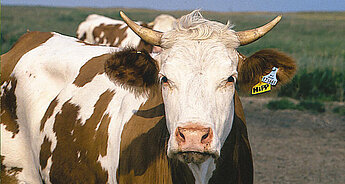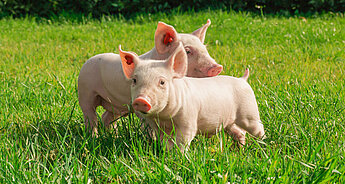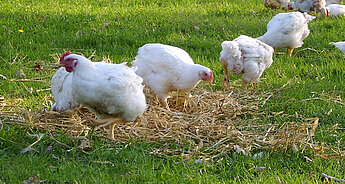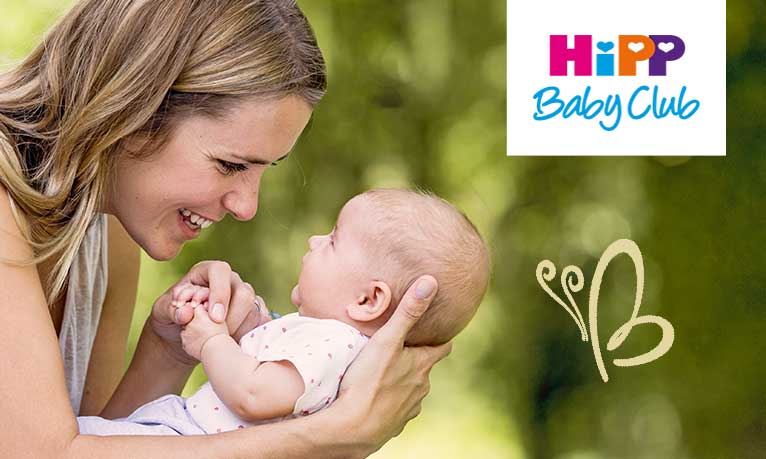
Species-appropriate husbandry
In line with the original behaviour and habitat of animals.
What are the characteristics of species-appropriate husbandry?
Species-appropriate husbandry and feeding of livestock are a central element of organic farming. The statutory provisions are very strict: the fodder must be sourced from organic farms and must not contain any antibiotics, performance-enhancing substances or genetically modified raw materials. Animal health is also ensured by the appropriate choice of breeds, ample freedom to move, large barns and sufficient light.
HiPP employees regularly check the compliance with all the requirements of animal protection demanded by HiPP on site. These comprehensive process checks enable us to guarantee our consumers that animal husbandry is kind and species-appropriate.
Organic cattle

Cattle and calves live on local organic farms and can roam free outdoors. This makes them robust and boosts their natural resilience.
They are perfectly healthy. Prophylactic medication is strictly forbidden. Our animals feed on organic vegetable fodder only.
Organic pigs

HiPP uses only products from animals that are proven to have been healthy and fit throughout their entire lives. The size of pigsties and run areas, the number of animal groups are specified according to the pigs' physiological requirements.
Organic chickens

Our organic chickens come from sustainably managed poultry farms: they can run freely, take dust baths and scratch the soil. They are fed with organic vegetable chicken feed. Poultry keeping is subject to regular veterinary supervision and must be seamlessly documented. Turkeys are also allowed to live naturally without their beaks being trimmed.

